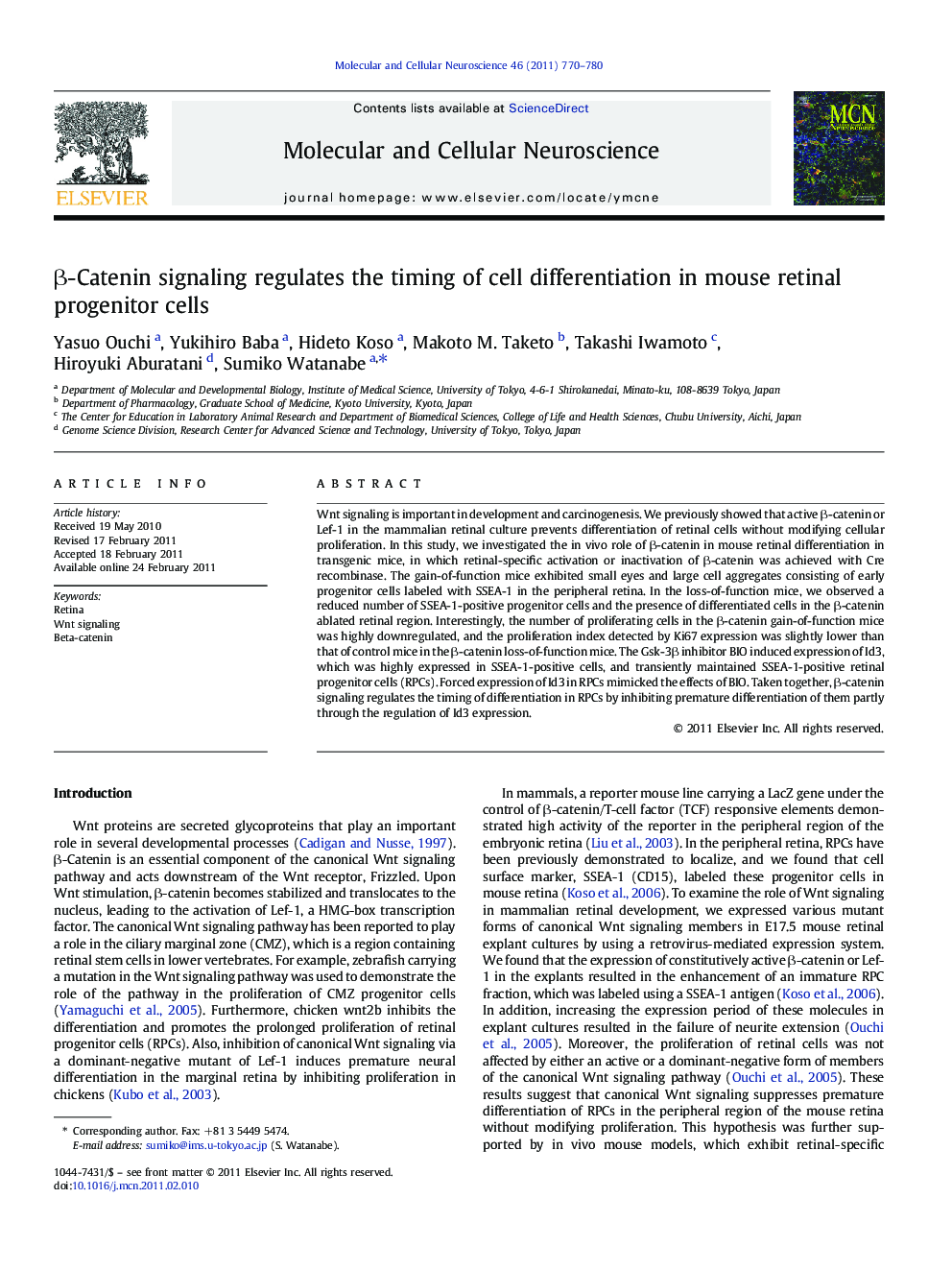| Article ID | Journal | Published Year | Pages | File Type |
|---|---|---|---|---|
| 2198654 | Molecular and Cellular Neuroscience | 2011 | 11 Pages |
Wnt signaling is important in development and carcinogenesis. We previously showed that active β-catenin or Lef-1 in the mammalian retinal culture prevents differentiation of retinal cells without modifying cellular proliferation. In this study, we investigated the in vivo role of β-catenin in mouse retinal differentiation in transgenic mice, in which retinal-specific activation or inactivation of β-catenin was achieved with Cre recombinase. The gain-of-function mice exhibited small eyes and large cell aggregates consisting of early progenitor cells labeled with SSEA-1 in the peripheral retina. In the loss-of-function mice, we observed a reduced number of SSEA-1-positive progenitor cells and the presence of differentiated cells in the β-catenin ablated retinal region. Interestingly, the number of proliferating cells in the β-catenin gain-of-function mice was highly downregulated, and the proliferation index detected by Ki67 expression was slightly lower than that of control mice in the β-catenin loss-of-function mice. The Gsk-3β inhibitor BIO induced expression of Id3, which was highly expressed in SSEA-1-positive cells, and transiently maintained SSEA-1-positive retinal progenitor cells (RPCs). Forced expression of Id3 in RPCs mimicked the effects of BIO. Taken together, β-catenin signaling regulates the timing of differentiation in RPCs by inhibiting premature differentiation of them partly through the regulation of Id3 expression.
